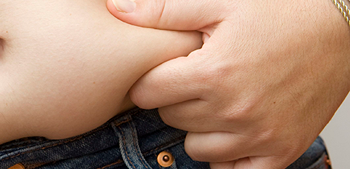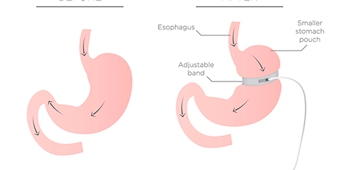
Hiccups are spasms that can happen to anyone, adults, children, and babies. They are caused by the spasms of your diaphragm paired with a ‘hic’ sound from your vocal cords closing. Your diaphragm is a muscle under your ribcage, separating your chest and stomach area. This muscle is an important part of the breathing process. It moves downward when you breathe in and upward when you breathe out[1]. Hiccups can happen for a lot of reasons: some of them are physical, and some emotional.
That’s because the actual irritation happens in the nerve connecting the brain to the diaphragm[2]. Some common causes include:
- Eating too much or too quickly
- Feeling nervous or excited
- Drinking carbonated beverages or too much alcohol
- Stress
- A sudden change in temperature
- Swallowing air while sucking on candy or chewing gum
Saying so, and according to the one source[3], “eating a large meal, drinking alcoholic or carbonated beverages, or getting excited suddenly may cause hiccups. In some cases, hiccups may be a sign of an underlying medical issue. For most people, hiccups usually last only a few minutes. Rarely, hiccups may continue for months. When they last that long, they can result in weight loss and extreme tiredness”.
Hiccups After Gastric Sleeve
Experiencing hiccups after having a gastric sleeve surgery is not an uncommon symptom. While hiccups can occur for different reasons, they can sometimes be associated with changes in the digestive system after surgery, including gastric sleeve surgery.
Hiccups can sometimes be triggered by the use of anesthesia during surgery or the trauma that the body undergoes during the surgical procedure itself. Anesthesia and surgical procedures can affect the diaphragm, the muscle responsible for breathing, which can lead to hiccups.
Also, as we have mentioned in previous articles, during gastric sleeve surgery the abdomen is inflated with CO2 gas to create space for the surgical instruments. This gas can irritate the diaphragm or other surrounding structures, perhaps leading to hiccups.
The alteration of the stomach during gastric sleeve surgery involves the body adapting to the smaller part of it that remained after the removed portion of the stomach. Thus, the digestive system can sometimes lead to changes in how the stomach functions, which might result in hiccups as the body adjusts.
During this process of adaptation, the body might also experience Gastroesophageal Reflux Disease (GERD) after gastric sleeve surgery, according to a study in the National Library of Medicine[4]. GERD can cause irritation in the esophagus and diaphragm, potentially leading to hiccups. Also, they found that after surgery, some people might swallow air more frequently due to changes in their eating habits or the size of their stomachs. This excess air can lead to hiccups.
How to Stop Hiccups after Gastric Sleeve
- Hold your breath: In order to restore your diaphragm’s rhythm, take a deep breath and hold it for as long as you comfortably can.
- Drink water: Drink a glass of water very slowly, without pausing to take a breath. This can help stimulate the vagus nerve and interrupt the hiccup reflex.
- Breathe into a paper bag: Breathing into a paper bag (not a plastic bag) for a short period can help increase carbon dioxide levels in your blood[5], which may help stop hiccups. However, be cautious and don’t overdo it to avoid potential negative effects.
- Gargle with ice water: Gargling with cold water can stimulate the vagus nerve and potentially interrupt the hiccup reflex.
- Diaphragmatic breathing: Practice deep and slow diaphragmatic breathing. This can help relax the diaphragm and may provide relief from hiccups.
Getting rid of hiccups after surgery, including gastric sleeve surgery, involves trying various methods to stimulate the diaphragm and interrupt the hiccup reflex. You can read and try these tips to handle hiccups after your surgery. However, we encourage contacting your doctor if the hiccups continue for more than two days.
Persistent or severe hiccups after gastric sleeve surgery, it’s uncommon, and it’s important to discuss this with your doctor since it might require urgent medical attention. They will evaluate your specific situation, and determine if any additional measures need to be taken to address the hiccups.
Remember hiccups are repeated spasms or sudden movements of the diaphragm that you can’t control. The diaphragm is the muscle that separates your chest from your stomach area and plays an important role in breathing. A spasm in your diaphragm causes your vocal cords to suddenly close, producing a “hic” sound.
Therefore, if you are already experiencing symptoms of your gastric sleeve recovery and you have had hiccups for more than 2 days, reach out to your healthcare team for personalized advice. Remember everybody is different and so it is each individual response to surgery, and while hiccups might be common in some cases, they might not occur in others. If you’re concerned about hiccups or any other post-surgery symptoms, always call your doctor.
Dr. Liza María Pompa González and her team in Tijuana, Mexico, have performed almost countless gastric sleeve surgeries, which, in the context of their integrative bariatric program, can offer long-term results to patients with obesity who want to achieve a healthy weight, a healthier lifestyle, and a greater wellbeing.
Contact Us for More Information
If you have undergone bariatric surgery in the past and are experiencing symptoms hiccups, or severe pain in the diaphragm, schedule an appointment at LIMARP®. We can help you alleviate your discomfort and improve your quality of life. Call our office toll-free at (866) 313-5750 or contact us online.
References
[1] “Hiccups”. https://my.clevelandclinic.org/health/diseases/17672-hiccups. (Accessed July 28, 2023).
[2] “Why Do I Hiccup?”. https://www.webmd.com/digestive-disorders/why-do-i-hiccup. (Accessed July 28, 2023).
[3] “Hiccups”. https://www.mayoclinic.org/diseases-conditions/hiccups/symptoms-causes/syc-20352613. (Accessed July 28, 2023).
[4] El-Hadi M, Birch DW, Gill RS, Karmali S. The effect of bariatric surgery on gastroesophageal reflux disease. Can J Surg. 2014 Apr;57(2):139-44. doi: 10.1503/cjs.030612. PMID: 24666452; PMCID: PMC3968207.
[5] “Stopping hiccups”. https://www.health.harvard.edu/staying-healthy/stopping-hiccups. (Accessed July 28, 2023).


